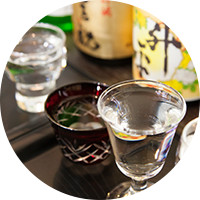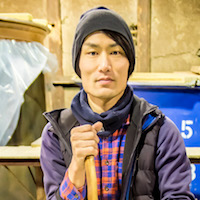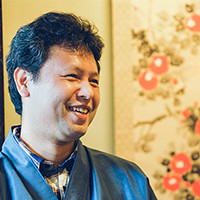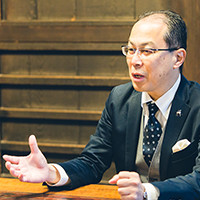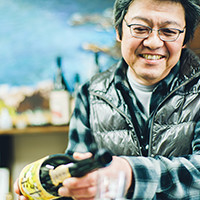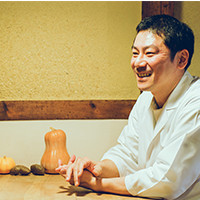The taste of Nara's sake
Japanese sake has been offered to gods since ancient times and has been an essential part of celebrations and festivities. Nara is believed to be the birthplace of Japanese sake. As an ancient capital, Nara hosted numerous large temples, where sake (called sōbōshu, meaning “temple sake”) was made back in those days. This was the first step that led to the development of the current sophisticated brewing techniques used in Japanese sake production. Sake made in Nara was called Narazake and represented high-grade sake at the time. Come and enjoy exquisite Narazake while reflecting on the roots of the delicate Japanese sake featuring the rich essence of rice.
The modern Nanto Morohaku passed down through generations
Story of Narazake
The story of the origin of Narazake begins in the Shōryaku-ji temple, which established the brewing techniques that form the foundation of modern sake brewing about 600 years ago. Today, Shōryaku-ji is the only temple that has a license to produce sake yeast starter called “Moto”. The special yeast starter called “Bodaimoto” was once stopped from production during the long history of Narazake, and Nara has a story of its miraculous revival.
Nara’s Japanese sake aims to deliver the many stories behind the sake produced in this land and have more people experience and enjoy it.
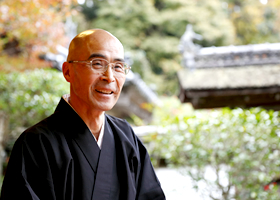 Shoryakuji Temple – Abbot
Koshin Ohara
Shoryakuji Temple – Abbot
Koshin Ohara
Characteristics of Nara’s sake
| Water | Uses the pure water from underground sources of the Kasugayama Primeval and Yoshino/Ikoma mountain range. |
|---|---|
| Rice | Uses the high-quality rice produced in the Nara Basin and highlands. The rice contributes to the fresh, smooth flavor of the sake. |
| Yeast | Each brewery has their own yeast type or blend. Sake made from the original Bodaimoto from Shōryaku-ji still survives today. |

